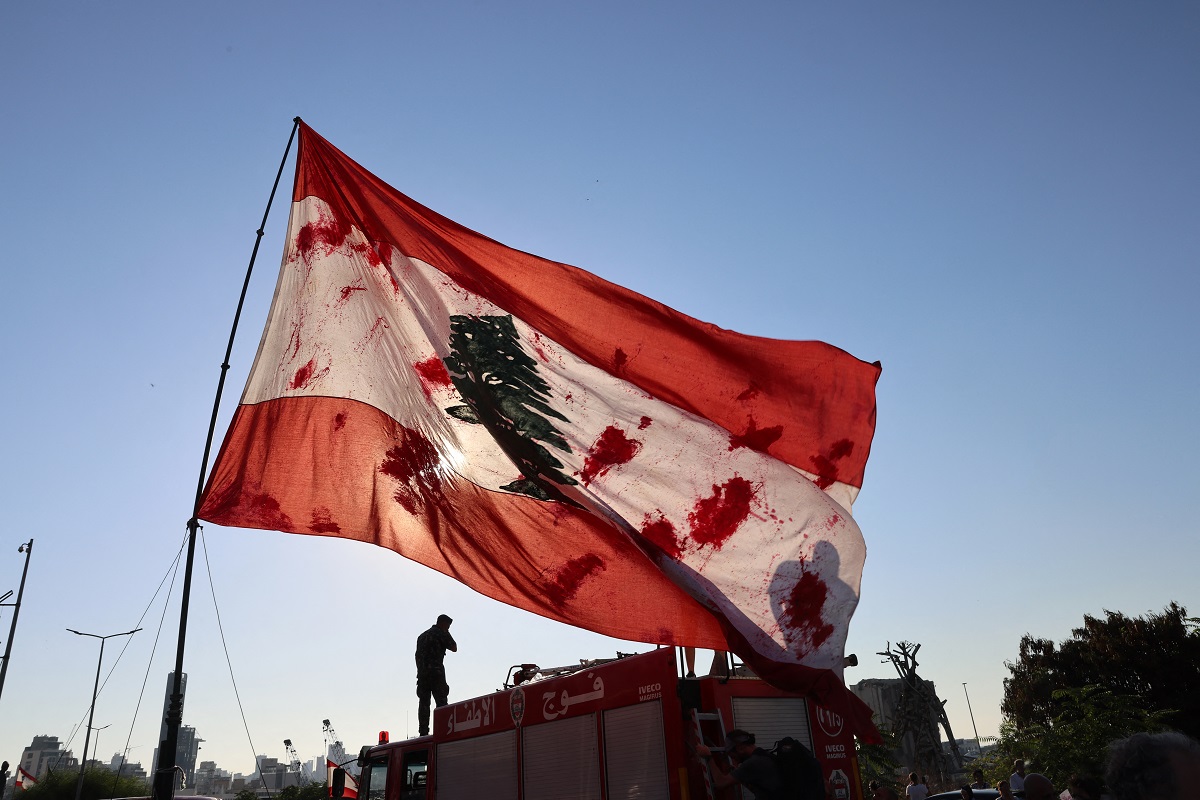
Lebanon’s Court of Cassation lifts arrest warrants against two former Cabinet Ministers in the Port Blast case
Judge Sabbouh Suleiman of the Court of Cassation suspended the arrest warrant against former Minister of Public Works, Youssef Fenianos, and former Minister of Finance – as well current MP – Ali Hassan Khalil, on condition of anonymity on Tuesday, officials said . The two former ministers were involved in the 2020 Beirut Port Blast case, one of the world’s largest non-nuclear explosions ever recorded, which claimed over 220 lives, wounded more than 7,000 individuals and displaced an estimated 300,000 people.
As the authorities themselves admitted, the catastrophic blast was triggered by a fire in a warehouse, where hundreds of tones of ammonium nitrate had been unsafely stored for years. The investigation has been at a standstill for months due to blatant interference by political and security officials, some of whom – including Fenianos, Khalil, and two other former senior government officials – were being prosecuted by the investigative Judge Tarek Bitar in connection with the case, who accused them of intentional killing and negligence.
On top of that, as reported by AP in September 2020, the United States Treasury had previously imposed sanctions on Fenianos and Khalil, alleging corruption and the provision of “material support” to the militant Hezbollah group.
Following the arrest warrants issued by Judge Bitar in 2021, former Minister Fenianos, in response, requested Bitar’s removal, citing “legitimate suspicion” regarding his handling of the case: a request joined by other politicians and security officials, as criticism and frustration from the victims’ families and rights groups have escalated due to the investigation’s two-year-long stall.
Delayed justice and political obstruction
The explosion’s victims have in fact seen justice delayed, with the investigation being stalled since December 2021 and Lebanon’s political class repeatedly intervening in the work of the judiciary by shielding politicians and officials implicated in the explosion from questioning, prosecution, and arrest. Due to such political interference, despite arrest warrants having been issued for cabinet ministers and heads of security agencies, no detentions have yet occurred.
In January 2023, Lebanon’s general prosecutor Ghassan Oueidat ordered the release of all suspects detained in the investigation: the unprecedented move amid rampant political interference bypassed the ongoing criminal investigation into the explosion, raising concerns about the ongoing political obstruction on the judiciary proceedings. In this regard, groups like Human Rights Watch, Amnesty International, Legal Action Worldwide, Legal Agenda, and the International Commission of Jurists, have documented a range of procedural and systemic flaws in the domestic investigation, including flagrant political interference, immunity for high-level political officials, lack of respect for the fair trial standards, and due process violations.
“The Lebanese authorities have run roughshod over the law, shamelessly bypassing an ongoing criminal investigation and retaliating against a judge who was just doing his job,” said Aya Majzoub, Amnesty International’s Deputy Director for the Middle East and North Africa, commenting on the legal challenges filed against Judge Bitar which resulted in the suspension of the investigation. “It is patently clear that the Lebanese authorities are determined to obstruct justice. Since the explosion, they have repeatedly blocked the domestic investigation, shielding themselves from accountability at the expense of the victims’ rights to truth, justice and redress.”
Towards an international fact-finding mission
Therefore, being clear that the domestic investigation will not be allowed to progress and cannot deliver justice, it seems that the establishment of an international fact-finding mission mandated by the UN Human Rights Council is all the more urgent, as support is amplifying. On the three-year anniversary of the Beirut blast, in fact, more than 300 organizations and individuals, including Human Rights Watch, called for the creation of an international fact-finding mission into the blast, while six UN experts voiced their support for such an international investigation.
After last September’s United Nations Human Rights Council, the UN High Commissioner for Human Rights Volker Türk denounced the lack of accountability for the Beirut port explosion and the repeated interference by Lebanese officials into the domestic investigation. “It may therefore be time to consider an international fact-finding mission to look into human rights violations related to the tragedy,” Türk said, hopefully bringing this resolution forward at the council’s next session in March.








